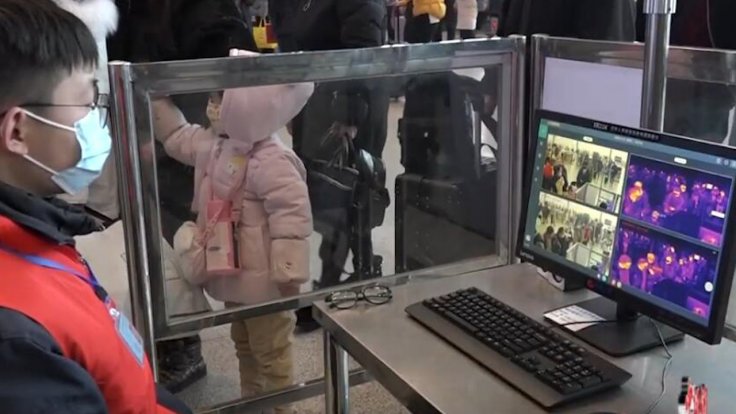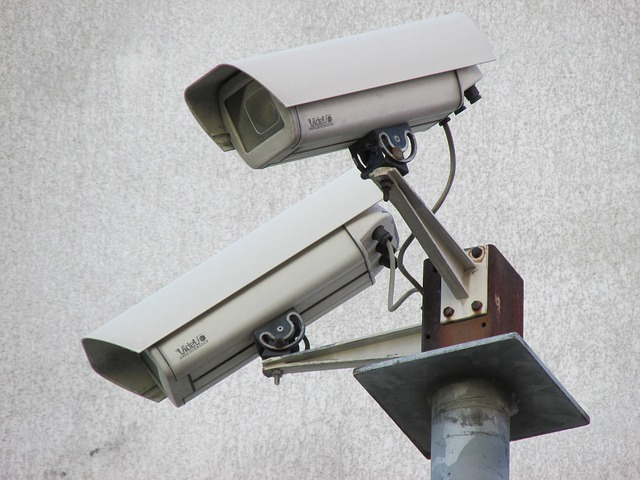While the Coronavirus has reached every populated continent in the world, Indonesia has announced its first two COVID-19 cases while Iran reported 11 more deaths from the virus, and Qatar confirmed two more infection cases. As the fear is gripping the other parts of the world, Chine, the epicentre of coronavirus, has brought in the latest technology and tools of artificial intelligence to combat the epidemic.
COVID-19 in China: New set up to fight back
It was revealed that the Asian country is using infrared images in stations which are helping officials to figure out who is having a high temperature. As reported by Al Jazeera, an employee at Chengdu's East Railway Station said that the cameras at the entrance of the gate are helping them a lot as now they don't have to check every commuter personally with an ear thermometer.
It should be noted that these thermal scanners have been newly installed at the stations in major Chinese cities. This is one of that artificial intelligence and big data tools which the Chinese authorities are using to combat the deadly Novel Coronavirus that has already killed more than 2,800 people in mainland China.
Fu Guobin, an employee at Chengdu's East Railway Station said that one day while checking infrared images he found a woman with high temperature and then informed health officials about the woman traveller from Henan whose fever stood at 37.9 degrees Celcius. He said she was rushed to an isolation room at the railway station and enquired about her travel in recent days.

The new AI system
Already some technology companies in China are planning to upgrade the temperature detection system, including facial recognition mode. A Beijing based software company Megvii announced on February 7 that they are currently working on integrates body detection, face detection and dual-sensing via infrared cameras and visible light to help the Chinese officials working at airports and train stations which will be easier for them to detect people with flu.
Zeng Yixin, deputy director of China's National Health Commission earlier said, "Facial recognition and the real-name system will help us track down those who have potentially been exposed to the virus and effectively curb the spreading of the pathogen."
The surveillance in China
For long, China has one of the most expensive and sophisticated surveillance systems in the world whereby authorities track the citizens through some 200 million security cameras installed nationwide. Some of these cameras include facial recognition technology. In view of the recent coronavirus outbreak, these cameras have come handy for the authorities to keep a tab on people with high temperature or other symptoms of the coronavirus.
A restaurant owner who works in Hubei, Ren was surprised to receive a call from local authorities who asked him to return home immediately when he went to a nearby farm to harvest cabbage and radishes for the New Year's eve dinner. He believes that the authorities tracked his movements through the cameras installed in the neighbourhood. Ren also mentioned that he counted at least four CCTV cameras near his house.

China using Big Data
The country is also using big data which includes tracking information on people's movements through their mobile phones as well as mobile apps that allow users to find out if they have come in contact with a host of the coronavirus.
China Mobile, a telecom company in the country sent text messages to media outlets about people confirmed to have the virus. These messages include a patient's travel history, such as which train they took and the subway train compartment.
Now, the Chinese government has rolled out a new mobile app "Close Contact Detector." The app is allowing the users to enter personal identification details, scanning of a QR code to check whether they have been in close contact with Coronavirus patients and whether they are at a heightened risk. Meanwhile, some companies have asked their employees to submit a "travel verification report" produced by telecom providers.
While some believe the use of such technology would help the country to fight back the Coronavirus outbreak, such expansive data-collection has also created concerns among people who fear that their privacy has been breached at a massive scale.









